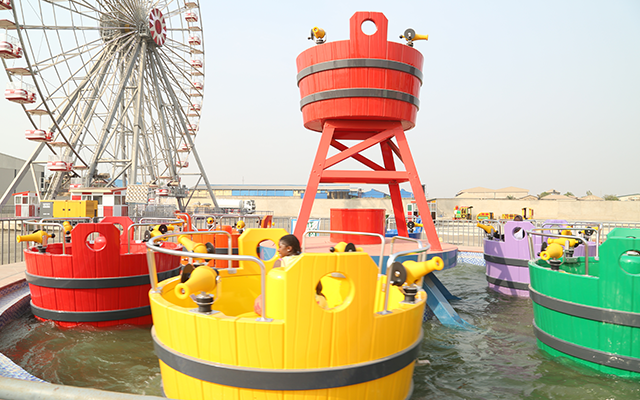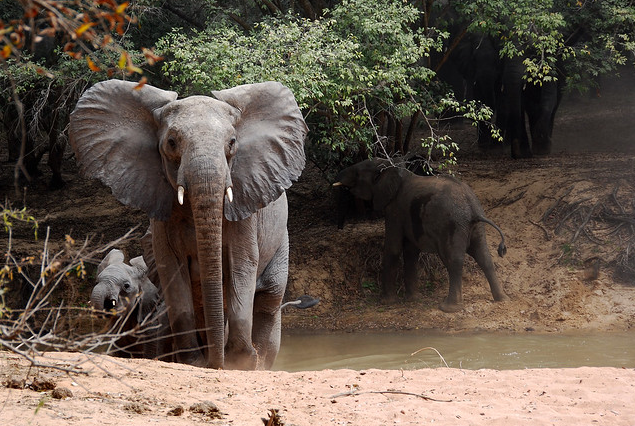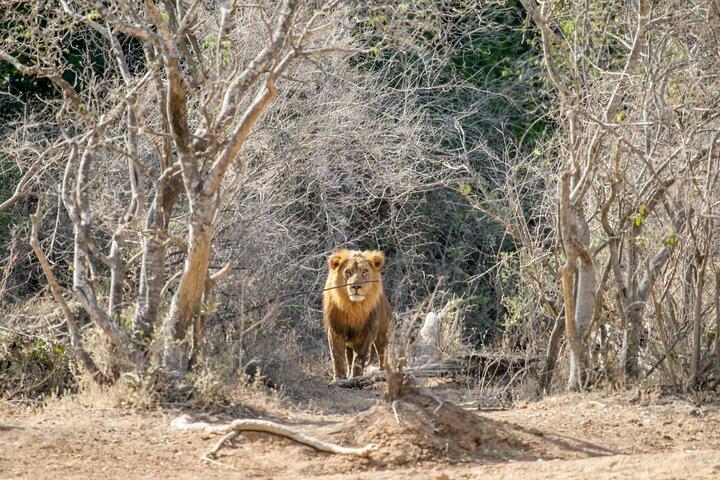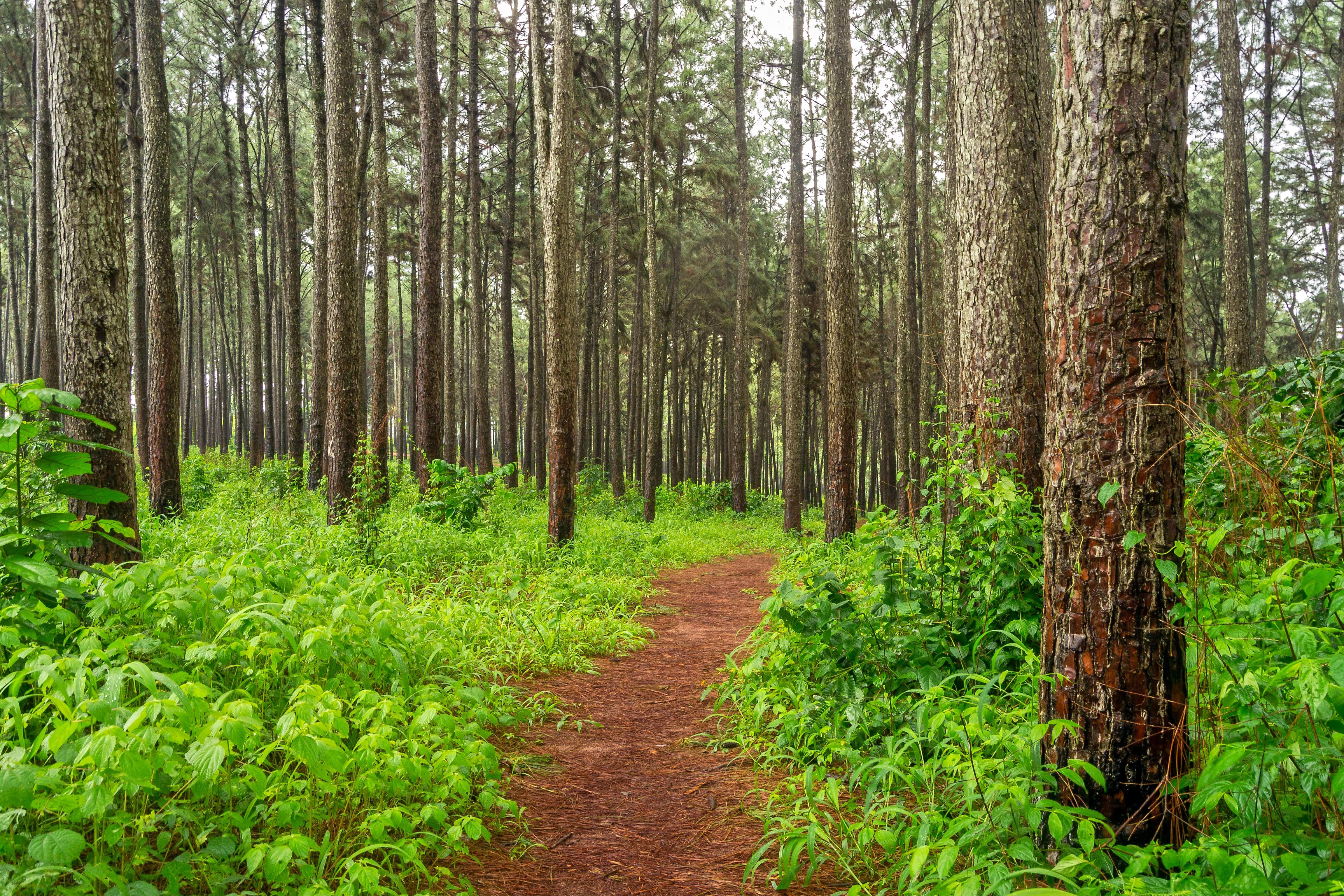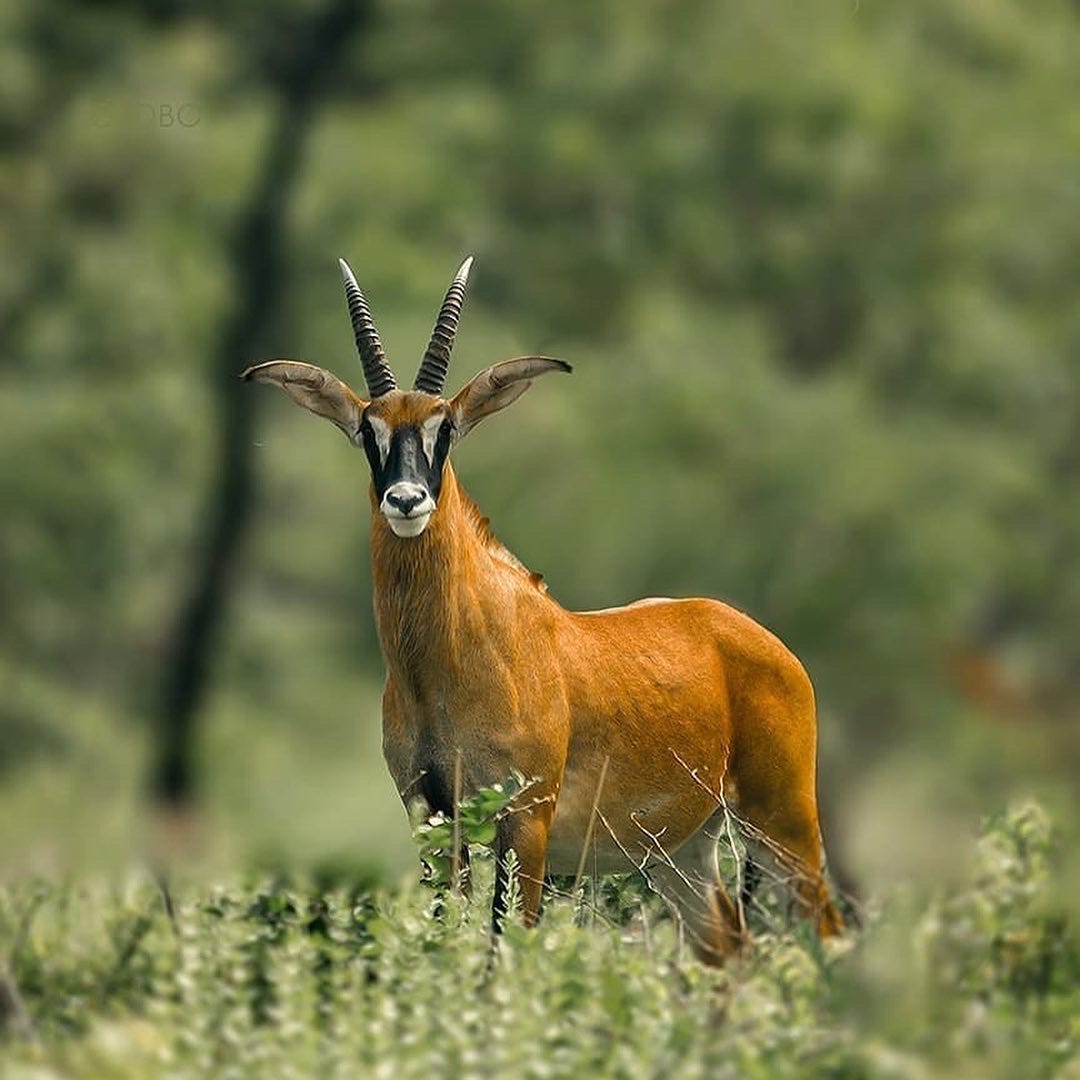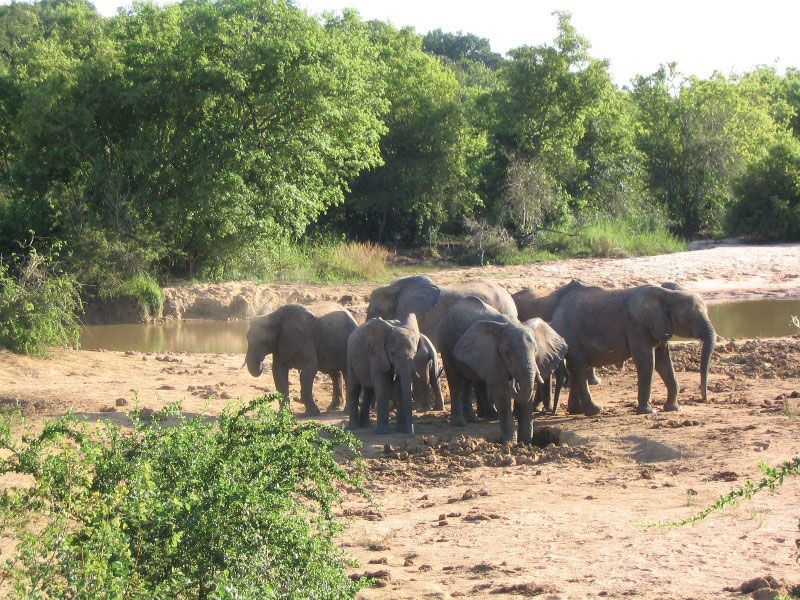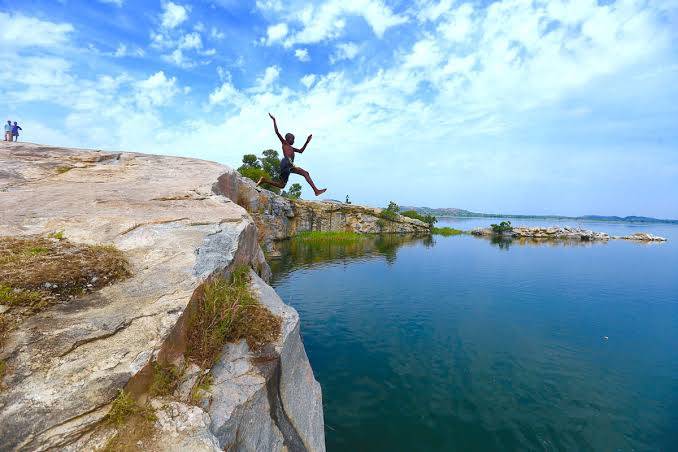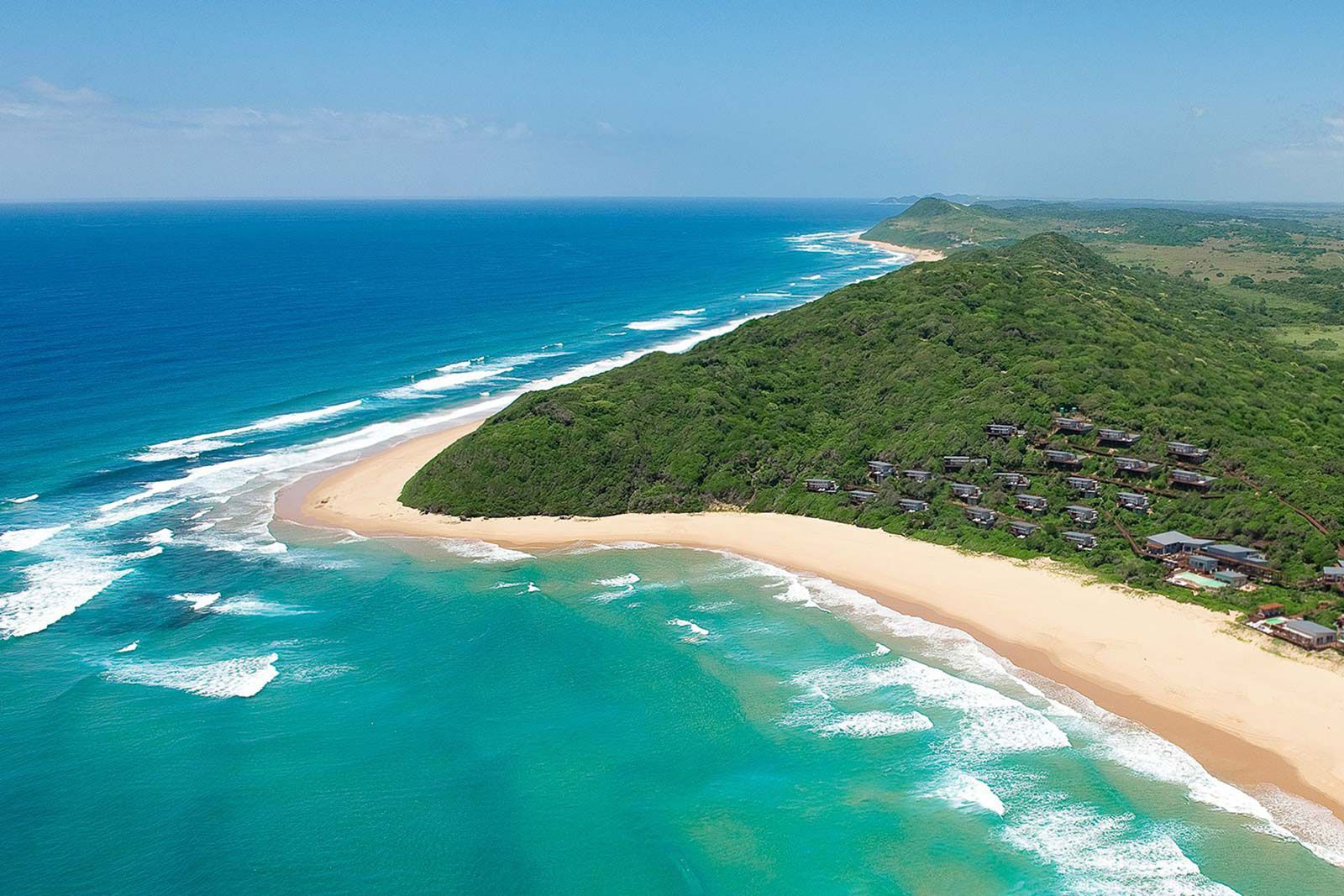Views Of Yankari Game Reserve
About
location:
Bauchi State, Nigeria
Yankari National Park is a renowned national park located in northeastern Nigeria, specifically in Bauchi State. It is the country's oldest and most popular national park, covering an expansive area of around 2,244 square kilometers (866 square miles). Yankari National Park is known for its rich biodiversity, picturesque landscapes, and natural hot springs, making it a significant tourist attraction within Nigeria.
The park is home to a wide variety of wildlife, including elephants, baboons, buffalo, antelope, waterbucks, crocodiles, and various species of monkeys. It is particularly famous for its large population of African elephants, making it one of the best places to observe these majestic creatures in their natural habitat.
In addition to its diverse wildlife, Yankari National Park offers visitors a range of exciting activities. Guided nature walks and safaris are popular ways to explore the park and observe the animals. The park also features several natural warm springs, such as the Wikki Warm Springs, where visitors can relax and enjoy a bath in the naturally heated water.
Yankari National Park is not only a sanctuary for wildlife but also an important conservation area. Efforts are made to protect the park's ecosystems and promote environmental sustainability. Local communities and the government work together to ensure the preservation of the park's natural resources and promote eco-tourism.
To accommodate visitors, Yankari National Park features several facilities, including a well-equipped safari lodge, campgrounds, picnic spots, and restaurants. These amenities provide a comfortable stay for tourists who wish to immerse themselves in the park's beauty and enjoy the wilderness.
Yankari National Park is a remarkable natural treasure in Nigeria, offering a diverse range of wildlife, stunning landscapes, and relaxing hot springs. Whether you're a nature enthusiast, wildlife lover, or simply seeking an adventurous experience, a visit to Yankari National Park will undoubtedly leave you with unforgettable memories.
Things to know before travelling to Yankari Game Reserve
This article is a tip of the iceberg but will equip you with the "Absolute Need to Knows" for Yankari Game Reserve.
How to get there?
If you're coming from outside of Nigeria, the easiest way to get to Yankari National Park is to fly into Lagos, the country's main international airport. From there, you can take a domestic flight to Bauchi State.
Alternatively, you can fly into Abuja, the capital of Nigeria, and then take a bus or taxi to Bauchi. Once you arrive in Bauchi, you can then take a taxi or bus to the park. The park is located about 150 kilometers from the city of Bauchi, and the journey takes about two hours by car. Once you arrive at the park, you can check in at the main office and then start exploring.
About the weather
Yankari National Park has a tropical savanna climate, with hot and dry weather for most of the year. The hottest months are from March to May, when temperatures can reach up to 40 degrees Celsius. The rainy season is from June to October, with occasional heavy downpours.
The coolest months are from November to February, when temperatures drop to around 25 degrees Celsius. No matter what time of year you visit, it's always a good idea to pack sunscreen, a hat, and plenty of water. The weather can be quite hot and dry, so it's important to stay hydrated.
Medical matters that affect your visit.
When planning a visit to Yankari National Park, it is important to be aware of potential medical matters that can affect your trip. While Yankari National Park is a beautiful destination known for its wildlife and natural beauty, there are a few health considerations to keep in mind to ensure a safe and enjoyable visit. Here are some medical matters that may affect your visit:
Malaria
Yankari National Park is located in an area where malaria is prevalent. It is essential to take malaria prevention measures, such as taking prophylactic medication, using insect repellents, and wearing protective clothing to minimize the risk of contracting this mosquito-borne disease.
Yellow Fever
Yellow fever vaccination is recommended for all travelers visiting Yankari National Park. It is a requirement for entry into Nigeria and is essential for your own protection against this viral infection transmitted by mosquitoes.
Other Mosquito-borne Diseases
Aside from malaria and yellow fever, there are other mosquito-borne diseases in Nigeria like dengue fever, Zika virus, and Chikungunya. Protection against mosquitoes through repellents, long-sleeved clothing, and mosquito nets is crucial to reduce the risk of infection.
Water-borne Diseases
Contaminated water sources can pose a risk of waterborne diseases like diarrhea, typhoid fever, and hepatitis A. It is advisable to drink only bottled or sterilized water, avoid ice cubes and uncooked/unpeeled fruits and vegetables, and maintain proper hand hygiene.
Sunburn and heat exhaustion
Yankari National Park experiences a hot climate, especially during the dry season. Sunburn and heat exhaustion can occur if proper sun protection measures are not taken. Ensure that you bring and apply sunscreen regularly, wear a hat and sunglasses, and stay hydrated to prevent these conditions.
Animal Encounters
While Yankari National Park is home to various wildlife species, some of them can pose a threat to visitors. It is important to follow park regulations and guidelines, maintain a safe distance from wild animals, and avoid provoking or feeding them. Being aware of potential animal encounters and maintaining a respectful distance can prevent injuries and improve your safety.
Travelers Diarrhea
Changes in diet and exposure to new bacteria can sometimes lead to traveler's diarrhea. Ensure that you consume safe and properly cooked food, avoid street food and tap water, and practice good hand hygiene to reduce the risk of this common travel-related ailment.
It is recommended to consult with a healthcare professional or travel medicine specialist before your trip to Yankari National Park. They can provide personalized advice based on your medical history, administer necessary vaccinations, and provide guidance on additional precautions to take to ensure a safe and healthy visit.
About the locals
The people who live around Yankari National Park are known as the "Bokwari," which means "the people of the bush." These people are a mix of ethnic groups, including the Fulani, Hausa, and Kanuri. The Fulani are a pastoral people who raise cattle, while the Hausa and Kanuri are agriculturalists.
They live in small villages scattered throughout the area, and many of them work as farmers, hunters, or fishermen. The Bokwari speak a variety of languages, including Hausa, Fulani, and Kanuri. They also have their own traditional dress, which includes brightly colored robes and headdresses.
The women often wear large necklaces and earrings, and the men often have intricate tattoos on their bodies. The Bokwari are a fascinating people, and getting to know them is one of the best parts of visiting Yankari National Park.
It's also worth noting that the Bokwari are known for their incredible knowledge of the local wildlife. They have a deep understanding of the natural world, and they know the habits and habitats of many different animals. This knowledge is passed down from generation to generation, and it's an important part of the local culture.
Many of the people who work as guides in the park are from the Bokwari community, and they have a wealth of knowledge about the area.
Overall, the locals at Yankari National Park are a warm and welcoming people who are proud of their cultural heritage. If you take the time to get to know them, you'll be rewarded with a unique and unforgettable experience. You may even make some lifelong friends! Have you ever been to a place where the locals are so welcoming and knowledgeable about their land?
If you do get the chance to visit Yankari National Park, be sure to take the time to learn about the people who call it home. It's truly a special place, and the people who live there are just as special. There's no better way to experience a place than by getting to know the locals and learning about their way of life.
Language and communication at Yankari National Park
Language and communication at the Yankari National Park is a fascinating aspect of the experience. English is the official language of Nigeria and is widely spoken by the staff at the reserve. However, the majority of the local community speak Hausa, a West African language that is widely spoken throughout Nigeria.
While many of the staff at the reserve are bilingual, they may not be as fluent in English as you may expect. Therefore, a basic knowledge of Hausa can be useful when communicating with the locals. However, non-verbal communication can also be a powerful tool.
Hand gestures, body language, and facial expressions can all be used to convey information and emotions. Even a simple smile or nod can go a long way in communicating your thoughts and feelings.
So, while language may be a barrier at Yankari National Park, it is possible to communicate effectively with the locals through a combination of English, Hausa, and non-verbal communication. This can help to create a more meaningful and rewarding experience for both you and the local community.
Safety Precautions at Yankari National Park
Safety is always a top priority at Yankari National Park. The park has a number of safety precautions in place to ensure the safety of visitors and staff.
- The park has a number of well-trained rangers who patrol the area and monitor wildlife activity.
- There is a strict no-hunting policy in place to protect the wildlife.
- There are rules in place for safely interacting with the animals, and visitors are advised to follow these rules at all times.
- The park has a medical clinic on site, and there is a hospital nearby for more serious medical issues.
- The park has a strong security presence, with guards patrolling the area 24/7.
- The roads in the park are well maintained, but drivers are advised to take caution, as there are often animals crossing the roads.
- There are safety rules in place for swimming in the park's natural pools, including a "buddy system" where visitors are required to swim with a partner.
- The park also has a strict "leave no trace" policy, which means visitors are expected to take their trash with them when they leave the park.
- Finally, the park has a number of emergency phone numbers in case of any emergencies.
These are just a few of the safety precautions in place at Yankari National Park. By following these precautions, visitors can ensure a safe and enjoyable experience in the park.
Vital Information On Money Matters
Money matters are an important consideration when visiting Yankari National Park. The park accepts payment in both cash and credit card, but it's always a good idea to bring some cash, just in case. The park has an ATM on site, but it's not always reliable, so it's best to be prepared.
The park has a number of souvenir shops, and most of them accept credit cards. However, it's a good idea to have some cash on hand for tips and small purchases. Also, be sure to bring a few small bills, as most vendors don't have change for large bills.
In terms of accommodations, most hotels and guesthouses in the area accept credit cards. However, it's always a good idea to check in advance. Many of the hotels and guesthouses also have safes where you can store your valuables.
Finally, when it comes to tipping, it's customary to tip 10-15% at most restaurants and hotels. For guides and drivers, a tip of 5-10% is customary.
However, these amounts are just guidelines, and you should tip according to your own comfort level and the level of service you received. Remember, tipping is never required, but it's always appreciated.
Fun Things To Do At Yankari National Park
Yankari National Park has a wide range of fun activities to offer visitors. Here are some of the top things to do:
- Take a game drive through the park to see lions, elephants, giraffes, and other wildlife.
- Go on a safari walk, which gives you the chance to see animals up close and learn about the park's ecology.
- Swim in one of the park's natural pools, or relax on the sandy beach.
- Visit the park's museum to learn about the history and culture of the area.
- Take a guided tour of the park's archaeological sites, including the Sungurungu Caves and the Yelwa Ruins.
- Enjoy a traditional Fulani meal at one of the park's local restaurants.
- Take a cooking class to learn how to prepare local dishes.
- Relax at the park's spa, which offers a variety of treatments, including massages and facials.
- Go on a camel safari to explore the park's desert areas.
These are just a few of the many fun activities available at Yankari National Park. You could easily spend a week or more exploring all the park has to offer!
Who Can Travel To Yankari National Park?
Yankari National Park is open to all visitors, regardless of age or nationality. However, there are a few things to keep in mind if you're planning a trip to the park.
Firstly, Children under the age of 12 must be accompanied by an adult at all times.There are no special facilities for people with disabilities, so it's important to contact the park in advance to make sure you have everything you need.
Secondly, The park is located in a remote area, so it's important to bring everything you need with you, including food, water, and other supplies. There are no stores or restaurants within the park itself.
There are also some cultural and religious restrictions that visitors should be aware of. For example, women should avoid wearing tight or revealing clothing, and everyone should avoid showing public displays of affection.
Finally, Visitors should also refrain from taking pictures of locals without their permission. By being aware of and respecting the local culture, you can ensure a pleasant and respectful visit to Yankari National Park.
Travel Documents
You will need a valid passport and visa to enter Nigeria. Make sure your passport is valid for at least six months after your travel date and check if you need to obtain a visa before traveling.
What time of the year is best to visit?
The best time to visit Yankari National Park is during the dry season, from November to March. During this time, the weather is cooler and the vegetation is less dense, making it easier to spot wildlife. The wet season, from April to October, is also a great time to visit, but be prepared for hot, humid weather and more mosquitos.
The park is also usually less crowded during the wet season. And keep in mind that June through August is the peak season, so you may want to avoid visiting during that time if you're trying to avoid crowds.
Packing Essentials For Your Trip
When packing for a trip to Yankari National Park, it's important to consider the location, climate, and activities you plan on engaging in. Here's a list of essentials to make your trip more comfortable and enjoyable:
Lightweight and breathable clothing
Pack comfortable and loose-fitting clothes suitable for warm weather, as Yankari National Park is located in Nigeria and typically has a tropical climate.
Swimsuit
You'll have access to natural swimming pools and springs, so pack a swimsuit for a refreshing dip.
Hiking shoes or comfortable sneakers
Yankari National Park offers numerous hiking trails, so make sure to bring appropriate footwear and a cap or hat to protect yourself from the sun and keep your head cool.
Insect Repellent
Yankari National Park is home to various insects, including mosquitoes. Bring insect repellent to protect yourself from bites and potential diseases like malaria. Opt for a DEET-based product for effectiveness.
Sun Protection
Apply sunscreen with a high SPF to shield your skin from the sun's harmful rays and wear sunglasses to protect your eyes from harsh sunlight and glare.
First Aid Kit
It's always a good idea to have a basic first aid kit with essentials like bandages, antiseptic cream, pain relievers, and any necessary prescription medications.
Personal Hygiene
Don't forget to pack your toothbrush, toothpaste, soap, and other personal hygiene items. Also carry a small bottle of hand sanitizer to maintain cleanliness, especially when water is not readily available.
Snacks and Water
Yankari National Park has various picnic spots and designated areas where you can have a meal. However, it's advisable to pack some snacks and water for longer hikes or unexpected delays.
Camera and Binoculars
Capture the beautiful wildlife and landscapes of Yankari National Park by bringing a camera. Binoculars can also enhance your wildlife viewing experience.
Maps and Guidebooks
Obtain maps and guidebooks of Yankari National Park to help you navigate the reserve and gain valuable insights about the flora, fauna, and history of the area.
Cash and Identification
Carry enough cash for entry fees, guides, and any purchases within the park. Additionally, bring identification documents like your passport or driver's license.
Remember to consider any specific requirements or restrictions provided by the park management or your accommodation.
Packing light, yet with the necessary essentials, will ensure you have a more enjoyable and hassle-free experience at Yankari National Park.
view map
Book Flight ticket
If this widget is not showing try reloading the page
The flight search result will be provided in a new tab
Nnamdi Azikiwe international airport, Abuja will be a good destination if you are coming from outside Nigeria
Book Hotel
If this widget is not showing try reloading the page
The hotel search result will be provided in a new tab
Input Bauchi, Nigeria as the city name to search and compare hotel prices
You can book tours at hotels upon arrival.
